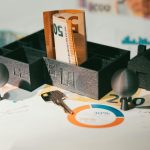Protect Your Finances with Comprehensive Mortgage Loan Fraud Audits
Introduction
The financial landscape of homeownership is fraught with complexities, and among them, mortgage loan fraud poses a significant risk. This sophisticated crime not only jeopardizes individual financial stability but also disrupts the broader economic system. Mortgage loan fraud refers to deliberate misrepresentation or omission of critical details by any party involved in the loan process, including borrowers, lenders, brokers, and appraisers. These activities can lead to severe financial consequences, from overpayment on loans to foreclosure.
Mortgage fraud has evolved into a multifaceted issue, ranging from simple income misstatements to intricate schemes involving straw buyers, inflated appraisals, and identity theft. In recent years, cases of fraud have surged, compelling lenders, regulators, and homeowners to adopt stricter measures to protect their investments. A mortgage loan fraud audit emerges as a vital tool in this fight, offering a thorough examination of mortgage documents to uncover discrepancies, fraudulent activities, or errors that might otherwise go unnoticed.
For homeowners, these audits provide peace of mind, ensuring their agreements are accurate and lawful. For lenders and financial institutions, they safeguard reputations and help maintain regulatory compliance. The importance of mortgage loan fraud audits cannot be overstated, particularly in an era of increasing digital fraud and financial manipulation.
In this blog, we will delve into the intricacies of mortgage loan fraud audits, exploring their significance, processes, and benefits. By understanding the role of audits in uncovering fraud, you can take proactive steps to secure your financial future. Contact us today at (877)-399-2995 or visit Mortgage Audits Online to learn more.
Understanding Mortgage Loan Fraud
Types of Mortgage Loan Fraud
Mortgage loan fraud can take various forms, each posing unique challenges. Common types include income falsification, asset misrepresentation, identity theft, and appraisal fraud. Income falsification occurs when borrowers inflate their earnings to qualify for a larger loan. Asset misrepresentation involves overstating assets to secure favorable loan terms. Identity theft, a growing concern, entails using stolen personal information to obtain a mortgage. Appraisal fraud involves manipulating property values to benefit specific parties.
Impact of Mortgage Loan Fraud
The ramifications of mortgage loan fraud extend beyond financial loss. For borrowers, it can result in unaffordable payments, default, or foreclosure. For lenders, it can mean financial losses, legal penalties, and reputational damage. Fraud also destabilizes the housing market by inflating property values, leading to economic instability. Understanding these impacts highlights the importance of early detection through audits.
The Role of Mortgage Loan Fraud Audits
What is a Mortgage Loan Fraud Audit?
A mortgage loan fraud audit is a meticulous review of all documents and transactions associated with a mortgage. This process identifies discrepancies, fraudulent activities, or procedural errors that could lead to financial or legal issues.
Why Are Audits Necessary?
Audits are essential for homeowners, lenders, and investors. They ensure transparency, identify potential fraud, and help maintain compliance with industry regulations. For homeowners, audits provide assurance that their mortgage terms are fair and accurate. For lenders, audits safeguard against fraud-related losses and regulatory breaches.
Key Components of a Mortgage Loan Fraud Audit
Mortgage loan fraud audits involve reviewing loan applications, income verification documents, credit reports, property appraisals, and closing statements. Auditors examine these documents for inconsistencies, misrepresentations, and signs of tampering. Advanced tools and techniques, such as data analytics and forensic accounting, enhance the accuracy and efficiency of audits.
The Process of Conducting a Mortgage Loan Fraud Audit
Document Collection and Verification
The audit process begins with gathering all relevant documents, including loan applications, bank statements, tax returns, and property records. These documents are verified for authenticity and accuracy.
Identifying Red Flags
Auditors use specialized methods to identify red flags indicative of fraud. Common red flags include discrepancies in income and employment records, unexplained gaps in documentation, and inconsistencies in property valuations.
Investigative Techniques
Auditors employ investigative techniques to uncover hidden fraud. These techniques include tracing financial transactions, cross-referencing data, and analyzing patterns. Advanced software tools streamline this process, enabling auditors to detect anomalies quickly and accurately.
Reporting and Recommendations
Once the audit is complete, auditors compile their findings into a detailed report. This report highlights identified issues and provides recommendations for resolving them. For lenders, the report may include suggestions for strengthening fraud prevention measures.
Benefits of Mortgage Loan Fraud Audits
For Homeowners
Mortgage loan fraud audits empower homeowners by ensuring their agreements are fair and accurate. Audits can uncover hidden fees, inflated interest rates, and other irregularities, enabling homeowners to negotiate better terms or take legal action if necessary.
For Lenders and Financial Institutions
Lenders benefit from audits by minimizing financial losses and ensuring regulatory compliance. Audits help identify fraudulent activities early, preventing costly legal battles and reputational damage.
For the Housing Market
Mortgage loan fraud audits contribute to a stable housing market by promoting transparency and accountability. By uncovering fraud, audits help maintain fair property valuations and prevent economic instability caused by inflated prices.
Challenges in Detecting Mortgage Loan Fraud
Sophistication of Fraud Schemes
Fraudsters employ increasingly sophisticated techniques, making detection more challenging. Advanced technology, such as deepfake documents and synthetic identities, complicates the auditing process.
Limited Awareness
Many homeowners and lenders lack awareness of the risks associated with mortgage fraud. This lack of awareness delays detection and increases the likelihood of financial loss.
Resource Constraints
Conducting thorough audits requires time, expertise, and resources. Smaller financial institutions and individual homeowners may face challenges in accessing these resources.
How to Prevent Mortgage Loan Fraud
Educating Stakeholders
Raising awareness about mortgage fraud is a crucial preventive measure. Homeowners, lenders, and real estate professionals should be educated about common fraud schemes and red flags.
Implementing Robust Controls
Financial institutions can prevent fraud by implementing robust internal controls. These controls include verifying borrower information, conducting regular audits, and using advanced fraud detection tools.
Leveraging Technology
Technology plays a pivotal role in fraud prevention. Artificial intelligence and machine learning algorithms can analyze large volumes of data, identifying patterns and anomalies indicative of fraud.
Choosing a Reliable Audit Service
Factors to Consider
When selecting an audit service, consider factors such as experience, expertise, and reputation. Choose a provider with a proven track record in uncovering mortgage fraud and ensuring regulatory compliance.
Benefits of Professional Audits
Professional audit services offer specialized knowledge and tools that enhance the accuracy and efficiency of audits. They provide peace of mind, knowing that your financial interests are protected.
Real-Life Case Studies
Case 1: Uncovering Income Misrepresentation
In one case, a borrower falsified income documents to secure a larger loan. A comprehensive audit revealed the discrepancies, enabling the lender to take corrective action and prevent financial losses.
Case 2: Detecting Appraisal Fraud
An audit uncovered inflated property valuations orchestrated by a real estate agent and appraiser. The findings led to legal action, safeguarding the lender and preventing further market distortions.
Case 3: Identifying Identity Theft
A homeowner discovered unauthorized transactions on their mortgage account. An audit revealed that their identity had been stolen, allowing them to take steps to rectify the situation and protect their credit.
The Future of Mortgage Loan Fraud Audits
Advances in Technology
Emerging technologies, such as blockchain and biometrics, hold promise for enhancing fraud detection. These technologies can improve data security and provide tamper-proof records, making fraud more difficult to execute.
Collaboration Among Stakeholders
Collaboration among lenders, regulators, and technology providers is essential for combating mortgage fraud. By sharing information and resources, stakeholders can develop more effective fraud prevention strategies.
Increasing Regulatory Oversight
As mortgage fraud continues to evolve, regulators are likely to implement stricter oversight and compliance requirements. These measures will drive the adoption of more rigorous auditing practices across the industry.
Conclusion
Mortgage loan fraud audits are indispensable tools in protecting financial interests and ensuring transparency in the housing market. Whether you’re a homeowner seeking peace of mind or a lender aiming to safeguard your assets, these audits offer invaluable insights into the accuracy and legality of mortgage agreements.
Fraudulent activities not only lead to financial losses but also erode trust in the housing market. By investing in comprehensive audits, stakeholders can mitigate risks, uncover hidden discrepancies, and promote accountability. The benefits extend beyond individual protection, contributing to a stable and fair financial ecosystem.
As the financial landscape continues to evolve, staying vigilant against fraud is crucial. Mortgage loan fraud audits empower individuals and institutions to take proactive measures, securing their futures with confidence. Whether you’re dealing with a complex financial transaction or seeking assurance about your mortgage agreement, these audits provide the clarity and security you need.
Don’t wait for issues to arise—be proactive. Contact us today at (877)-399-2995 or visit Mortgage Audits Online to learn more. Secure your financial future with confidence and ensure your investments are safeguarded against fraud.




